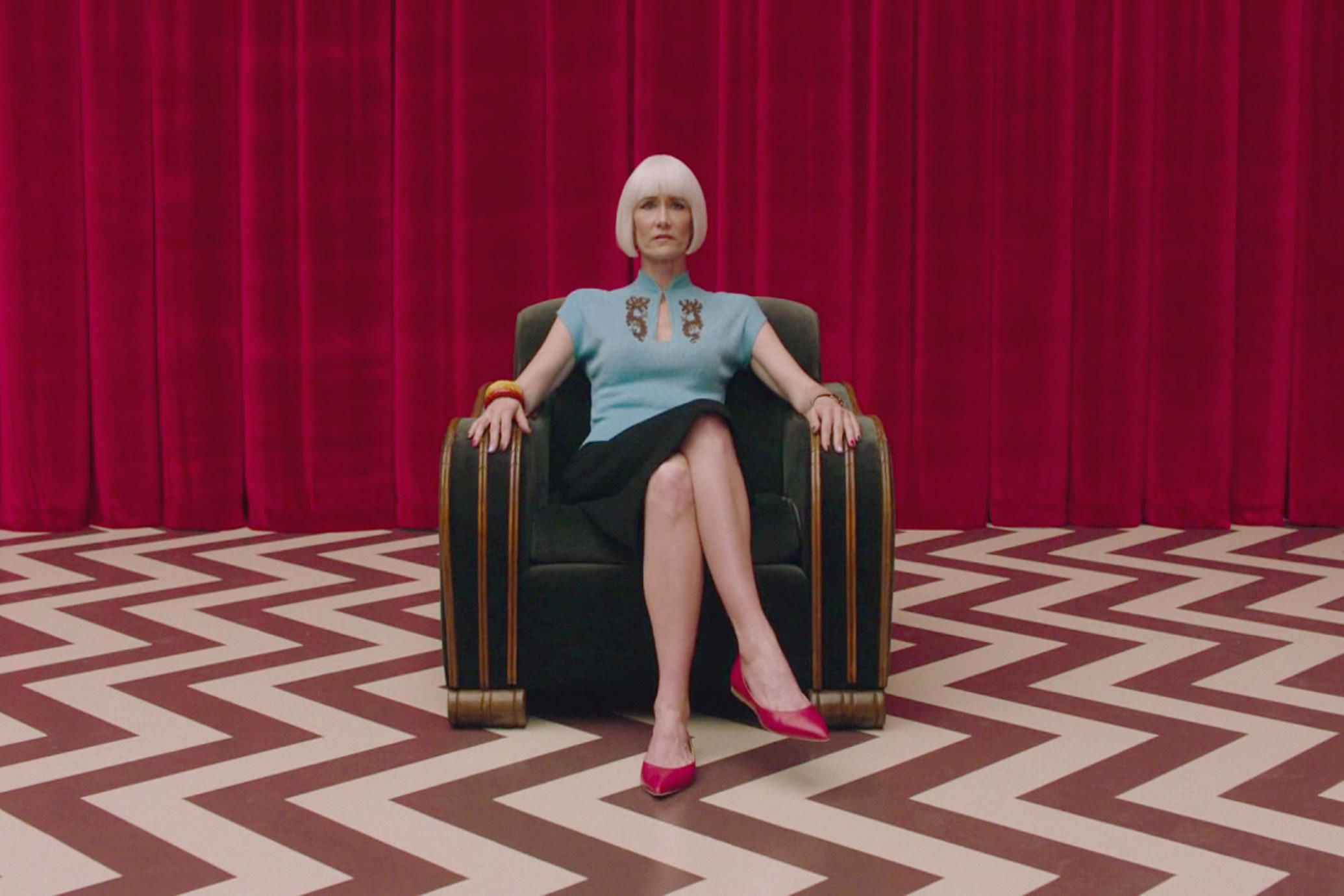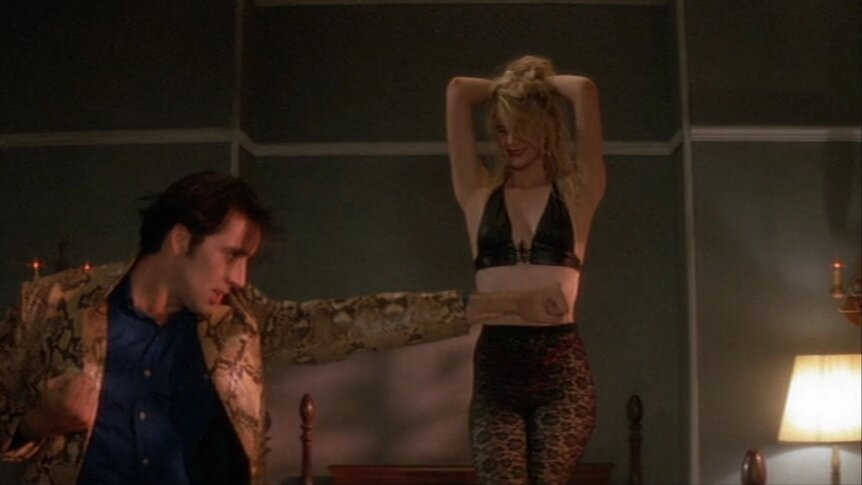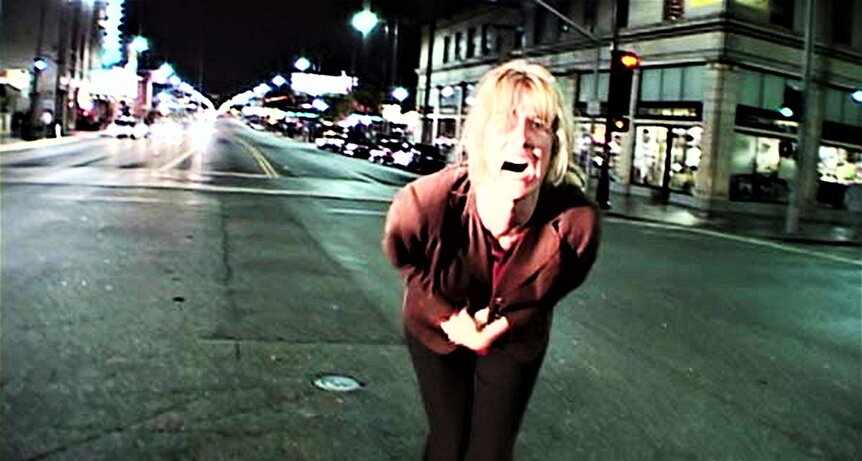Create a free profile to get unlimited access to exclusive videos, sweepstakes, and more!
Looking back on some of Laura Dern's most iconic roles in the Lynchverse

The daughter of two actors, Laura Dern was, in some ways, born into the trade, but she's also gone well out of her way to always seek out interesting and challenging roles that prioritize the art of acting. David Lynch is an art-house favorite turned celebrity director whose films have focused on especially trying roles for actors against nightmarish backdrops. These two have a surprisingly similar outlook on the artistic side of filmmaking, and their collaborations have led to some of the most memorable film moments of the last 40 years.
By the time her Blue Velvet "audition" rolled around in 1986, Dern was only 16 but had been acting since childhood, accompanying her mom (acclaimed actor Diane Ladd) on films like White Lightning and Alice Doesn't Live Here Anymore. Even at her young age, she'd turned out a handful of surprisingly heavy performances in films like Foxes and Smooth Talk, as well as the highly underrated cult classic Ladies and Gentlemen, the Fabulous Stains.
In Blue Velvet, Dern played the role of Sandy Williams, the romantic interest of Kyle MacLachlan's well-intentioned but in-over-his-head Jeffrey Beaumont. Sandy's involvement in the film is comparatively minor, but she represents a dream of wholesomeness that Jeffrey is at first drawn away from but eventually embraces. One of the most memorable parts of the movie features Beaumont reaching a point of despair with the immorality that surrounds him and Williams' heartfelt assurance that love would save him in the end.
Lynch's follow-up to the critically acclaimed Blue Velvet was 1990's Wild at Heart, which follows the story of Sailor and Lula through a bizarro U.S. in which Americana and The Wizard of Oz-themed parables intersect with moody visions of horror, violence, and despair. Not that far off from the real thing, now that we think of it. Dern was cast in the role of Lula, who stands by her troubled lover Sailor through his many challenges.
In Wild at Heart, Dern plays almost the polar opposite of Sandy, but Lula and Sandy have more in common than one might think due to their shared undercurrent of faith and hopefulness. Coincidentally, Lula's mother was played by Diane Ladd, which gave Dern the opportunity to act opposite her mother in what would become iconic roles for them both.
It wasn't until 2006's Inland Empire that the two would team up again. In the 16 years since their collaboration, Dern had become internationally famous through parts in films like Jurassic Park while maintaining her social relevance by choosing roles like that of the troubled protagonist of Citizen Ruth. Meanwhile, Lynch had surprising television success with Twin Peaks and directed some of his best-known features, like Lost Highway and Mulholland Drive.
Inland Empire is a bit of a sleeper hit for both actor and director, but there is no questioning that this was a tour de force for Dern. Though the format is experimental and intended to cause a dreamy, disoriented feeling of unreality, one thing that had to be absolutely crystal clear was Dern's performance. This movie regularly pops up on underrated film lists, and it absolutely deserves to be, as it's a complicated masterpiece in which both Dern and Lynch are at the absolute top of their game.
Ostensibly, this film is about an actor who begins to take on the characteristics of the role she is playing. The meta-commentary on Hollywood that came to prominence in Mulholland Drive continues here as Dern's Nikki Grace begins an ill-fated affair with her co-star. She discovers that the film is actually a remake of a foreign film that was never made, as both its leads were murdered. She becomes a character known as Sue, who shares her truly brutal story before experiencing an extended, painful death, then discovers that it was only a movie scene. The plot is about as coherent as any nightmare you've ever had, but the blur between self and the characters an actor takes on is the main focus of the film, granting us one of the most fascinating commentaries on life behind the camera in the 2000s.
Though Inland Empire didn't get the props it deserved even just for Dern's unbelievable performance alone, Twin Peaks has always had a major following in the world of genre. When Twin Peaks: The Return was announced and it was revealed that the voiceless, faceless Diane of the previous two seasons would be appearing onscreen, Dern seemed like a shoo-in for the part. In The Return, Diane, once the dependable, long-distance girl Friday of Agent Cooper, has left the FBI and become bitter and jaded after the organization was unable to protect her and Cooper from the darker forces in play. Dern as Diane is a revelation, and easily one of the highlights of the series.
David Lynch has worked with a lot of great actors, and Laura Dern has worked with a lot of great directors, but there is definitely something to be said about how their careers have intersected over the decades. Lynch's films wouldn't work without great actors, and Lynch's surrealist subject matter has given Dern a lot of room to show her chops. From the very beginning to only a couple of years ago, these two have been part of several of the other's milestones. In the end, surreal films like Wild at Heart and Inland Empire need actors who are willing to cut through the unreality to show the underlying heartache or hopefulness of a moment, and Dern has always been more than up for the job.




























